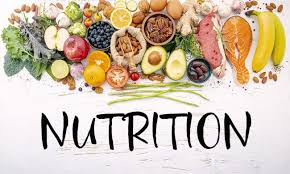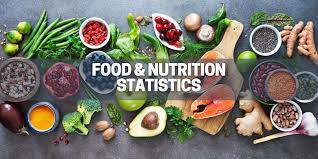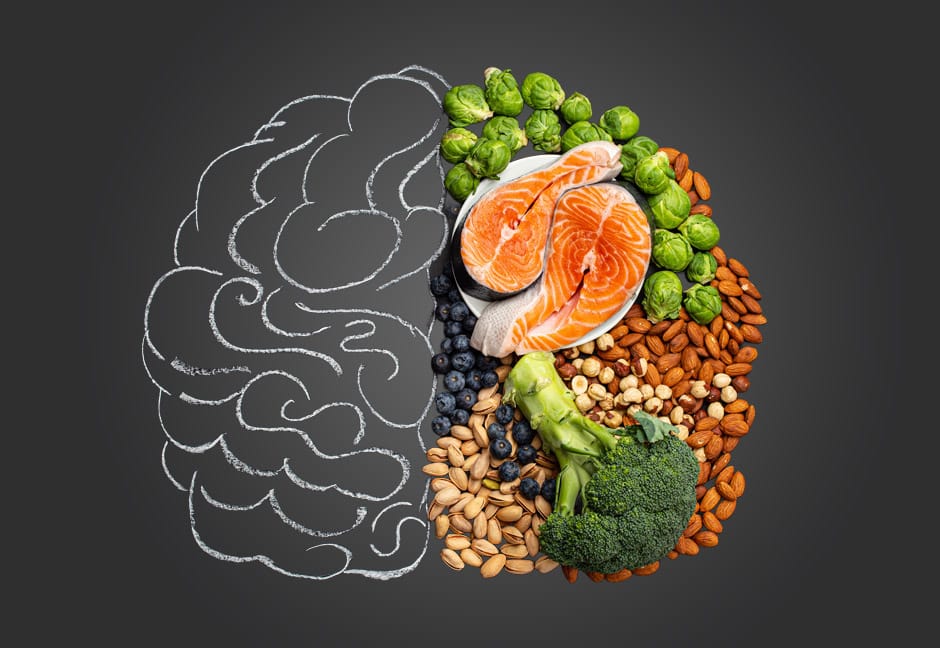Understanding Macronutrients in Your Nutrition and Diet
The term ‘macronutrients’ is yet another nutrition related term which most people, as often as it is tossed around, have no idea about, with the majority of them going, “What the heck is this thing, and why is it so important?” Cosmopolitan for the most part do not even understand basic principles of the food pyramid if they even bother looking at it, they do not comprehend what to do with protein powders, and when it comes to carbohydrates avoid wondering completely. This article hopes to strip the cobwebs away from the subject of macronutrients in the most simplified way possible- and you are welcome. Let us therefore take on the challenge of grappling with the basic principles of macronutrients one at a time in a relaxed manner.
What Are Macronutrients?: Macronutrients are the nutrients that provide us with the energy we need to function and thrive. There are three main types of macronutrients:
1. Proteins
2. Carbohydrates
3. Fats
Each of these macronutrients plays a unique role in our bodies, contributing to overall health, wellness, and bodily functions. Think of them as the three musketeers of nutrition, each with its own strengths and responsibilities.
Why Are Macronutrients Important?:
Energy Production: Macronutrients provide the energy (calories) we need for daily activities, from brushing our teeth to running a marathon (or at least jogging to the fridge).
Body Functions: Each macronutrient plays a role in critical bodily functions, such as repairing tissues, regulating hormones, and supporting brain health.
Weight Management: Knowing how to balance macronutrients can help you achieve your weight goals, whether you want to lose, gain, or maintain weight.
- Let’s Break Down Each Macronutrient
- Proteins
- What Are Proteins?
Proteins are complex molecules made up of amino acids, which are the building blocks of life. They are essential for building and repairing tissues, making enzymes, and supporting immune function.
How Much Protein Do You Need?
The Recommended Dietary allowance, RDA for protein is 0.8 grams per kilogram of body weight to adults. However, from one person to another things such as age, activity, and fitness goals will ultimately determine how much protein you need. For instance, those who are active in sports or those who wish to increase muscle tissue will have a higher protein requirement.
Animal Sources: Chicken, turkey, fish, beef, eggs, and dairy products.
Plant Sources: Legumes (beans and lentils), nuts, seeds, and whole grains.
| Protein Source | Amount (g of Protein) | Calories |
| Chicken Breast (3 oz) | 26 g | 140 |
| Lentils (1 cup cooked) | 18 g | 230 |
| Greek Yogurt (1 cup) | 20 g | 100 |
What Are Carbohydrates?
Carbohydrates act as the energy providing unit of the body. To be precise, they disintegrate into glucose, which provides energy for our cells, tissues and organs. It also comes in the form of sugars starch and fiber in addition to the feeling aspect.
How Much Carbohydrate Do You Need?: The Dietary Guidelines recommend that 45-65% of your total daily calories come from carbohydrates. This is about 225 to 325 grams for a 2,000-calorie diet. But don’t worry; you won’t turn into a carbohydrate unless you start wearing bread-themed outfits.
Sources of Carbohydrates
Simple Carbs: Sugars found in fruits, milk, and processed foods (think candy bars and soda).
Complex Carbs: Whole grains, legumes, vegetables, and starchy foods like potatoes.
| Carbohydrate Source | Amount (g of Carbs) | Calories |
| Brown Rice (1 cup cooked) | 45 g | 215 |
| Banana (1 medium) | 27 g | 105 |
| Quinoa (1 cup cooked) | 39 g | 222 |
What Are Fats?: Fats are essential for hormone production, brain health, and nutrient absorption. They provide energy, help maintain body temperature, and protect vital organs. But not all fats are created equal!
How Much Fat Do You Need?
According to the Dietary Guidelines, fat should comprise 20-35 percent of one’s total daily intake. In the case of a 2000 calorie oriented diet, it comes to 44 to 78 g of fat daily. Don’t let this figure intimidate you! Consider them healthy fats, they help to keep you satiated and your minded active.
Sources of Healthy Fats
Unsaturated Fats: Avocados, olive oil, nuts, seeds, and fatty fish.
Saturated Fats: Coconut oil, butter, and animal fats (consume in moderation).
Trans Fats: Often found in processed foods (best to avoid these).
| Fat Source | Amount (g of Fat) | Calories |
| Avocado (1 medium) | 21 g | 234 |
| Olive Oil (1 tablespoon) | 14 g | 120 |
| Salmon (3 oz) | 10 g | 200 |
Balancing Your Macronutrients: Now that we’ve broken down the macronutrients, it’s essential to understand how to balance them for optimal health. A balanced plate typically consists of:
Proteins: About 25-30% of your meal.
Carbohydrates: About 45-55% of your meal.
Fats: About 20-30% of your meal.
But remember, balance doesn’t mean perfection! If you have a pizza night, just add some salad on the side and call it a day.
- How to Calculate Your Macronutrient Needs
- Step 1: Determine Your Daily Caloric Needs
You can calculate your Total Daily Energy Expenditure (TDEE) using online calculators that consider your age, gender, weight, height, and activity level. Once you know your TDEE, you can set your macronutrient goals based on your weight goals.
Step 2: Set Your Macronutrient Ratios: Using the guidelines mentioned earlier, decide how you want to distribute your macronutrients. Here’s an example for a 2,000-calorie diet:

| Macronutrient | Percentage | Calories | Grams |
| Proteins | 25% | 500 | 125 grams (4 cal/gram) |
| Carbohydrates | 50% | 1,000 | 250 grams (4 cal/gram) |
| Fats | 25% | 500 | 56 grams (9 cal/gram) |
Step 3: Track Your Intake
You may find it extremely easy to keep a record of your food intake; even a mere written diary or a mobile phone application can suffice. Monitoring your daily food intake can help you to know if you are achieving the recommended daily amount of macronutrients and to control your nutrition if required more easily.
Stereotypes about Macronutrients:
Myth 1: Carbs Will Make You Fat
Truth: If you don’t eat carbs in excess you will not add weight. Everything is moderation and balance is key (hi, whole foods).
Myth 2: Eating Fat Helps You Gain Weight
Truth: You require essential fatty acids. However, trans fats and saturated fat to some excess are the very things to avoid.
Myth 3: Protein is Just for weight lifters
Truth: No, protein is needed by everybody. It completes the muscle repairing tasks, the regulation of hormones, and even contributes to the defense of the body against diseases.
FAQs
Can I lose weight by only focusing on protein?
While increasing your protein intake can help with weight loss by keeping you full, it’s essential to maintain a balanced diet that includes all macronutrients. Remember, your body needs a variety of nutrients to function optimally!
Are there any risks associated with low-carb diets?
Low-carb diets can be effective for some people, but they may not be suitable for everyone. Long-term adherence can lead to nutrient deficiencies, so it’s essential to find a diet that works for your individual needs and lifestyle.
How can I ensure I’m getting enough fiber?
Fiber is a type of carbohydrate that helps maintain digestive health. To ensure you’re getting enough, incorporate whole grains, fruits, vegetables, legumes, and nuts into your diet.
Is it necessary to track macronutrients every day?
Tracking macronutrients can be helpful, especially when starting a new diet or weight loss plan. However, it’s not necessary to track them every day. Focus on creating healthy habits and enjoy your food!
Can I have dessert on a balanced diet?
Absolutely! You can enjoy dessert as part of a balanced diet. Just remember to keep portion sizes in check and balance it with your overall macronutrient intake.
Understanding macronutrients is a crucial part of maintaining a healthy diet and lifestyle. By learning how to balance proteins, carbohydrates, and fats, you can tailor your nutrition to fit your individual needs and goals. So the next time you hear the word “macronutrients,” remember: they’re not just a complicated science project—they’re your allies in the quest for better health.






